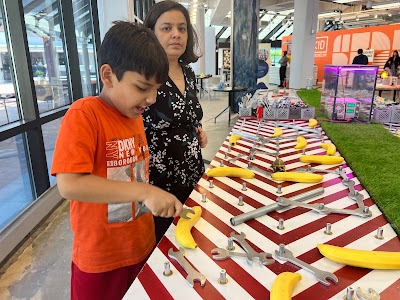Kidal Museum (Musée de Kidal)
Overview
The **Kidal Museum**, situated in the captivating Kidal Region of Mali, offers visitors an extraordinary opportunity to delve into the vibrant cultural heritage of the area. Nestled amidst vast deserts and rugged landscapes, this museum stands as a beacon of tradition, preserving the diverse customs of the local **Tuareg people**, also known as the **Kel Tamasheq**.
Established to curate and display artifacts that embody the Tuareg way of life, the Kidal Museum invites exploration into both the ancient history and the living cultural practices of this semi-nomadic group. The Tuareg are renowned for their striking blue clothing, intricate silver jewelry, and exquisite leatherwork, all of which are beautifully represented in the museum's thoughtfully arranged exhibits.
A testament to the resilience and creativity of the Tuareg, the museum's collections showcase the extraordinary craftsmanship honed over centuries. Visitors can marvel at finely crafted leather saddles, intricate silver crosses, and traditional clothing dyed with natural indigo. Each artifact narrates the story of a people who have thrived in one of the world's most challenging environments.
One of the most captivating features of the Kidal Museum is its celebration of **oral history and storytelling**. The museum pays homage to the Tuareg's rich oral traditions, which have historically been used to convey knowledge and culture across generations. Visitors can listen to audio recordings of traditional Tuareg music and stories, allowing them to immerse themselves in the narrative customs that remain vital in Tuareg society today.
In addition to cultural exhibits, the Kidal Museum fosters a deeper appreciation of the region's **natural environment**. The displays often highlight the symbiotic relationship between the Tuareg people and their surroundings, illustrating how they navigate the Sahara Desert and their traditional knowledge of local flora and fauna, as well as sustainable practices that have enabled them to thrive in harmony with the land for millennia.
For foreign tourists, visiting the Kidal Museum transcends mere education; it offers a profound journey into the heart of an enduring culture. The museum provides comprehensive guided tours, often led by local Tuareg guides who share personal insights and stories, bringing the exhibits to life in a way that textual descriptions cannot. These guides are essential for understanding the significance of various artifacts, rituals, and customs, as they share their own experiences and perspectives.
Moreover, the Kidal Museum plays an active role in **cultural preservation and community engagement**. It frequently hosts cultural events, workshops, and traditional music performances, inviting both residents and visitors to participate. These events provide a unique opportunity to engage with Tuareg cultural practices firsthand, creating memorable experiences for all attendees.
The architecture of the Kidal Museum itself deserves admiration. Designed to blend seamlessly with its desert surroundings, the structure utilizes local materials and traditional building techniques. Its functional yet symbolic design reflects the Tuareg's sustainable practices and their profound connection to the land.
Though the Kidal Region may be off the beaten path for many travelers, the Kidal Museum stands as a compelling reason to visit. It serves as an invaluable window into the life and heritage of the Tuareg people, offering an immersive experience that leaves a lasting impact on every visitor. For those eager to explore the cultural richness of Mali and the resilience of its people, the Kidal Museum is an unmissable destination.
In conclusion, the Kidal Museum is not merely a collection of artifacts; it is a vibrant celebration of Tuareg culture and history. As a proud emblem of the Kidal Region, it welcomes all who seek to learn, appreciate, and be inspired by the enduring spirit of the Tuareg people. Whether you are a history enthusiast, a cultural explorer, or simply a curious traveler, the Kidal Museum promises a unique and enriching experience that you will cherish long after your visit.





